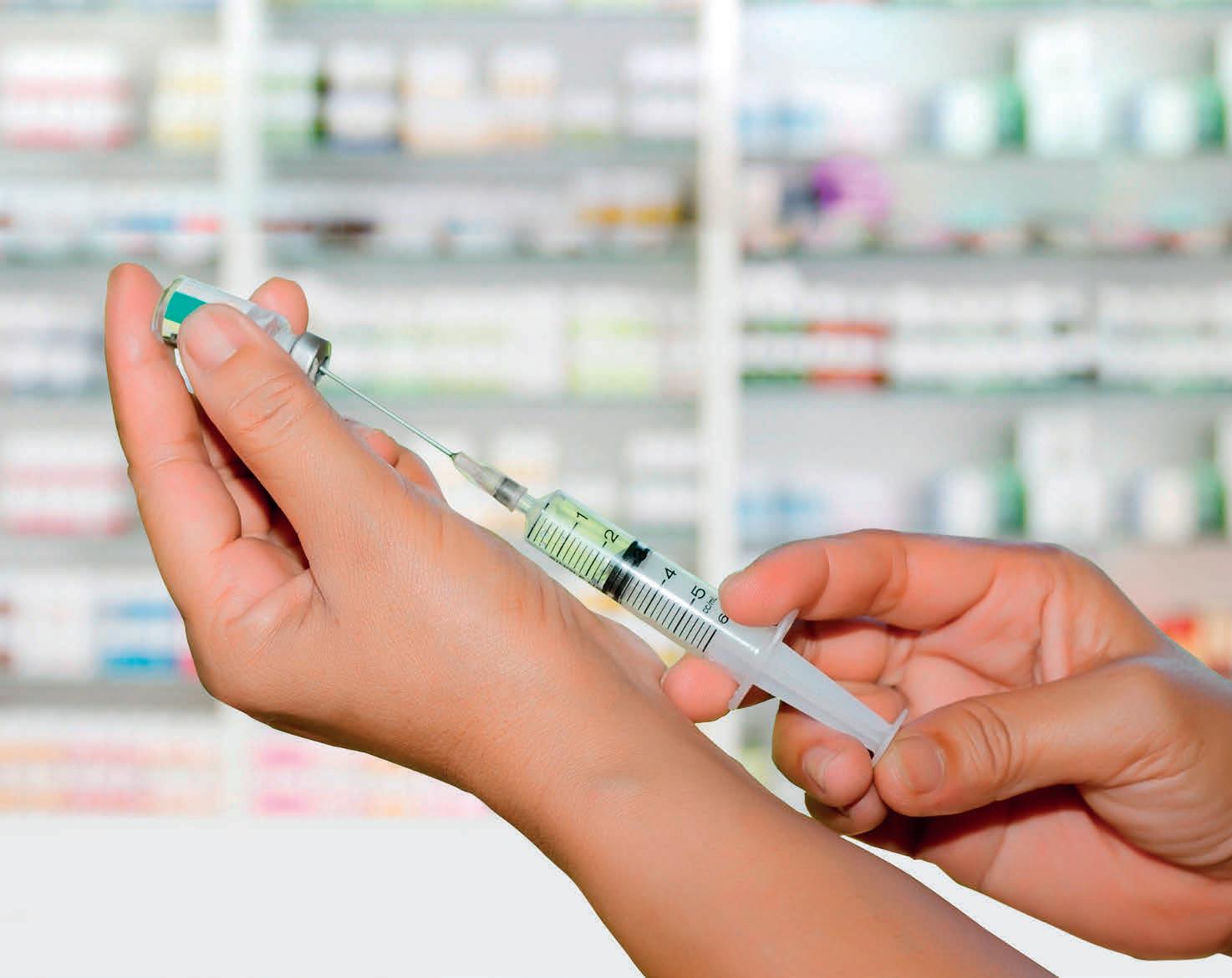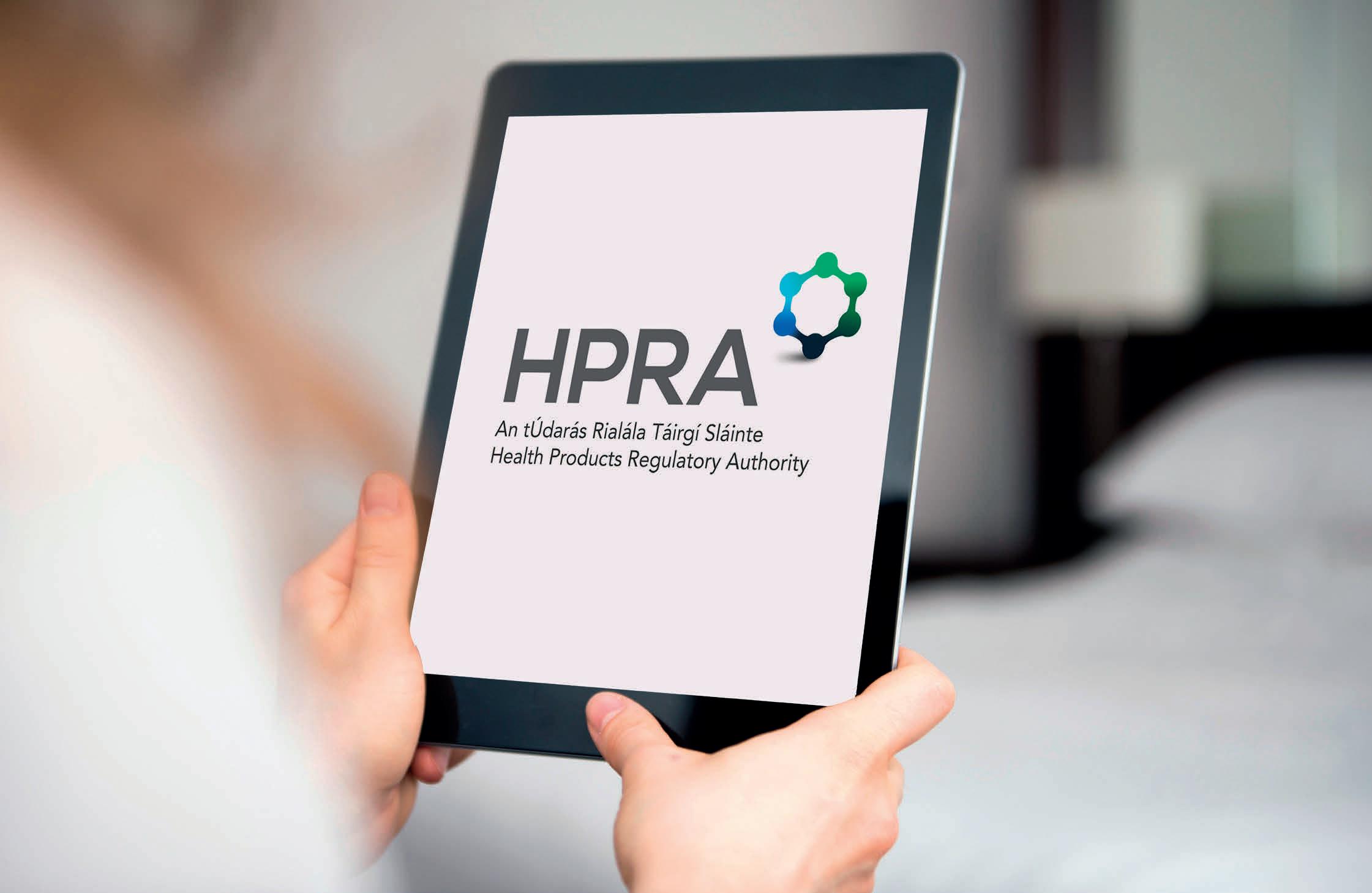
4 minute read
COLD & FLU?
(discontinue immediately in these cases), history of gastro-intestinal disease (ulcerative colitis, Crohn's disease), alcohol, risk of arterial thrombotic events (particularly at a high ibuprofen dose of 2400 mg/day), serious skin reactions. Discontinue at the rst appearance of skin rash, mucosal lesions, or any other sign of hypersensitivity. Consider carefully in uncontrolled hypertension, congestive heart failure (NYHA II-III), established ischaemic heart disease, peripheral arterial disease, and/or cerebrovascular disease and high doses (2400 mg/day) should be avoided. Precautions for use related to ibuprofen: Monitor the elderly carefully, due to increased frequency of NSAID-related undesirable e ects, particularly gastro-intestinal bleeding and perforation, which can be fatal. Monitor in history of gastro-intestinal disease (such as peptic ulcer, hiatus hernia or gastrointestinal bleeding). Monitor urine output and renal function initially in heart failure, chronically impaired renal or hepatic function, patients taking diuretics, hypovolaemia as a result of major surgery. If visual disturbances occur during the course of treatment, a full ophthalmological examination should be carried out. Interactions: Refer to the SPC for detailed information on interactions. Combination of pseudoephedrine with: Non-selective MAOIs (iproniazid); Other indirectly-acting, orally or nasally administered sympathomimetics or vasoconstrictor agents, α-sympathomimetic drugs, phenylpropanolamine, phenylephrine, ephedrine, methylphenidate; Reversible inhibitors of monoamine oxidase A (RIMAs), linezolid, dopaminergic ergot alkaloids, vasoconstrictor ergot alkaloids: Volatile halogenated anaesthetics: Guanethidine, reserpine and methyldopa: Tricyclic antidepressants; Digitalis, chinidine or tricyclic antidepressants. Concomitant use of ibuprofen with: Other NSAIDs, including salicylates and COX-2 selective inhibitors; Digoxin; Corticosteroids; Anti-platelet agents; Acetylsalicylic acid; Anticoagulants: (e.g.: warfarin, ticlopidine, clopidogrel, tiro ban, epti batide, abciximab, iloprost); Phenytoin; Selective serotonin reuptake inhibitors (SSRIs); Lithium; Probenecid and sul npyrazone Diuretics, ACE inhibitors, beta-receptor blockers and angiotensin-II antagonists; Potassium sparing diuretics; Methotrexate; Ciclosporin; Tacrolimus; Zidovudine; Sulphonylureas; Quinolone antibiotics; Heparins; Gingko biloba. Pregnancy and Lactation: Contra-indicated during breastfeeding and the third trimester of pregnancy and should only be given if clearly necessary during the rst and second trimester. Ability to Drive and Use Machinery: Minor or moderate in uence on the ability to drive and use machines. Patients who experience dizziness, hallucinations, unusual headaches and visual or hearing disturbances should avoid driving or using machinery. Single administration or short-term use of this medicine does not usually warrant the adoption of any

Inflammatory Disease
Researchers find new link between a disrupted body clock and inflammatory diseases
New research from the RCSI has demonstrated the significant role that an irregular body clock plays in driving inflammation in the body’s immune cells, with implications for the most serious and prevalent diseases in humans.
Published in Frontiers in Immunology, the research was led by the School of Pharmacy and Biomolecular Sciences at RCSI University of Medicine and Health Sciences.
The circadian body clock generates 24-hour rhythms that keep humans healthy and in time with the day/night cycle. This includes regulating the rhythm of the body’s own (innate) immune cells called macrophages. When these cell rhythms
Hospital Pharmacy

are disrupted (due to things like erratic eating/sleeping patterns or shift work), the cells produce molecules that drive inflammation. This can lead to chronic inflammatory diseases such as heart disease, obesity, arthritis, diabetes and cancer, and can also impact our ability to fight infection.
In this study, the researchers looked at macrophages with and without a body clock under laboratory conditions. They were interested to understand if macrophages without a body clock might use or ‘metabolise’ fuel differently, and if that might be the reason these cells produce more inflammatory products.
The researchers found that macrophages without a body clock took up far more glucose and broke it down more quickly than normal cells. They also found that, in the mitochondria (the cells’ energy powerhouse), the pathways by which glucose was further broken down to produce energy were very different in macrophages without a clock. This led to the production of reactive oxygen species (ROS), which further fuelled inflammation.
Dr George Timmons, lead author on the study, said: “Our results add to the growing body of work showing why disruption of our body clock leads to inflamma- tory and infectious disease, and one of the aspects is fuel usage at the level of key immune cells, such as macrophages.”
Dr Annie Curtis, Senior Lecturer at RCSI School of Pharmacy and Biomolecular Sciences and senior author on the paper, added: “This study also shows that anything which negatively impacts on our body clocks, such as insufficient sleep and not enough daylight, can impact on the ability of our immune system to work effectively.”
RCSI conducted the study in collaboration with researchers from Swansea University, Trinity College Dublin and the University of Bristol.
EAHP and ESCP collaborate to produce ‘Oath to Society’ for pharmacists
Ensuring the safe use of medication is one of the key activities of clinical and hospital pharmacists. However, many people don’t know that both professions carry out many more activities to ensure optimal treatment outcomes for patients, according to the European Association of Hospital Pharmacists (EAHP) and the European Society of Clinical Pharmacy (ESCP). The two bodies have collaboratively developed the ‘Oath to Society’, which acts as a contract for excellence in providing compassionate patient care, working as part of the healthcare team, advancing the pharmacy profession, and showcasing how clinical and hospital pharmacists work every day.
The Oath to Society is the promise that the members of EAHP and ESCP make to patients and the public they serve, the healthcare professionals they interact with and the health systems they work in, they said. The
Oath functions as a compass for pharmacists to adhere to the highest standards of ethics, integrity and professionalism, as they provide service to the community over the course of their careers, said the EAHP and ESCP. Touching on trust and respect, different aspects of the patient care pathway, the multidisciplinary care team, disease prevention and health promotion, education and the future development of pharmacy practice, the Oath to Society is all-encompassing, they said.
Reflecting on their creation before the launch event, ESCP President Mr Derek Stewart commented: “The development of the Oath to Society for European clinical and hospital pharmacists was inspired by similar initiatives of pharmacists and our fellow healthcare profession- als around the globe. The Oath to Society emphasises respect for patient privacy, the key contributions that our profession makes, and the need for clinical and hospital pharmacists to uphold the highest standards of ethics for both themselves and their colleagues.”
Commenting during the launch event, EAHP President Mr András Süle stated: “It is important to communicate closely with patients, their carers and our fellow healthcare professionals, such as physicians, nurses and pharmacy technicians, to offer the best possible treatment. As the healthcare system shifts towards efficiency while still ensuring a high degree of safety and quality, pharmacists — as valued members of the interprofessional healthcare team — can and should play an integral role, focusing on medication management, medication reconciliation, preventive care and patient education.”









